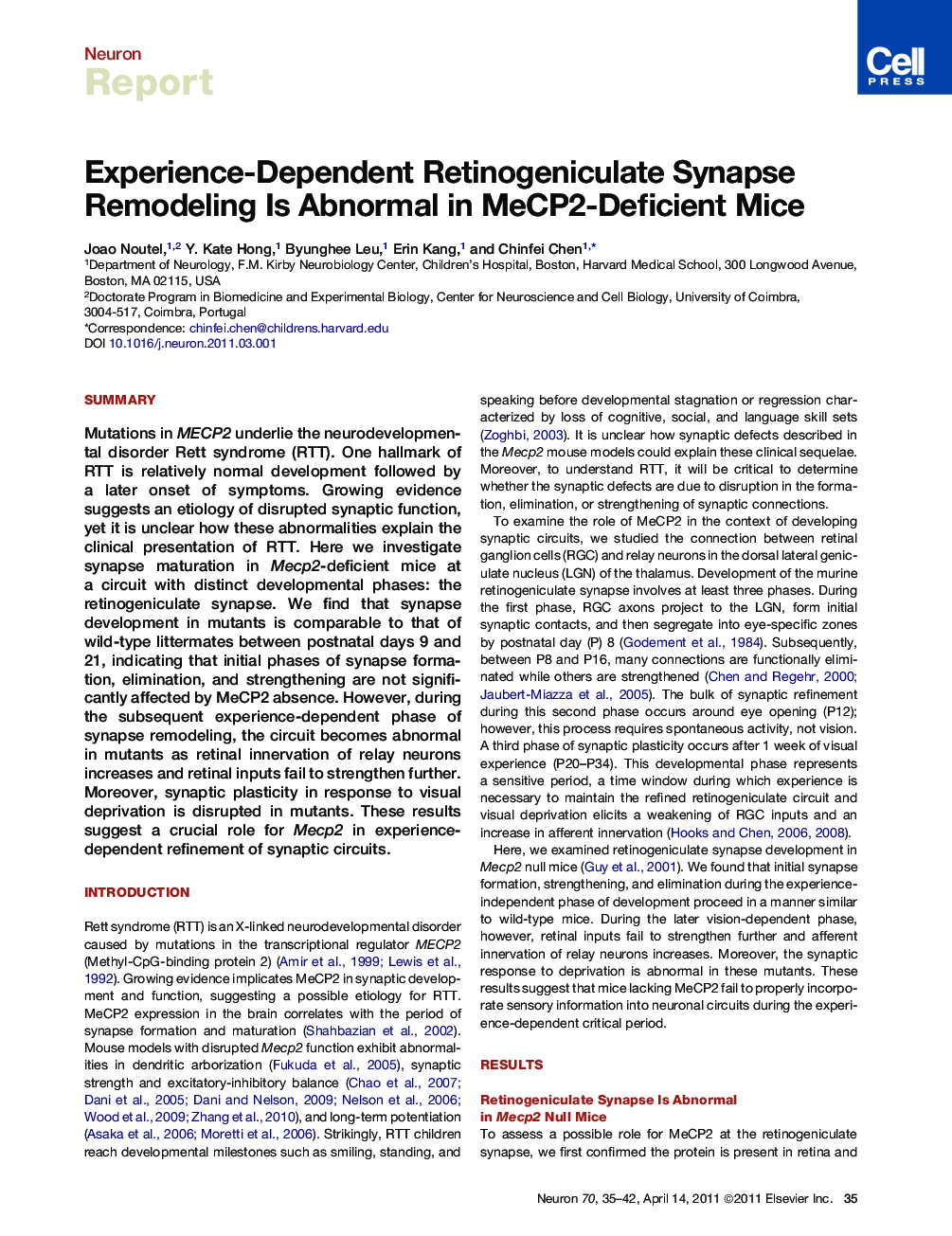| Article ID | Journal | Published Year | Pages | File Type |
|---|---|---|---|---|
| 4321678 | Neuron | 2011 | 8 Pages |
SummaryMutations in MECP2 underlie the neurodevelopmental disorder Rett syndrome (RTT). One hallmark of RTT is relatively normal development followed by a later onset of symptoms. Growing evidence suggests an etiology of disrupted synaptic function, yet it is unclear how these abnormalities explain the clinical presentation of RTT. Here we investigate synapse maturation in Mecp2-deficient mice at a circuit with distinct developmental phases: the retinogeniculate synapse. We find that synapse development in mutants is comparable to that of wild-type littermates between postnatal days 9 and 21, indicating that initial phases of synapse formation, elimination, and strengthening are not significantly affected by MeCP2 absence. However, during the subsequent experience-dependent phase of synapse remodeling, the circuit becomes abnormal in mutants as retinal innervation of relay neurons increases and retinal inputs fail to strengthen further. Moreover, synaptic plasticity in response to visual deprivation is disrupted in mutants. These results suggest a crucial role for Mecp2 in experience-dependent refinement of synaptic circuits.
► Experience-dependent remodeling of synaptic circuits is abnormal in Mecp2 null mice ► Responsiveness of the circuit to visual deprivation is reduced in mice lacking MeCP2 ► Late defects in circuit function follow a normal developmental program in mutant mice ► MeCP2 is important for the integration of sensory information into synaptic circuits
